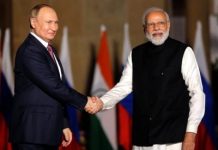 Trade (noun): A male heterosexual, usually working class, who take Sexual gratification from homosexuals without reciprocation.
Trade (noun): A male heterosexual, usually working class, who take Sexual gratification from homosexuals without reciprocation.
If context is crucial when one speaks as an outsider, let me Immediately situate myself. New Delhi, late evening… I’m sitting in the back seat of a yellow and black cab.
It’s easy to miss the charm of the occasion, but social life rarely accords so private and extended an encounter between two strangers of such different social backgrounds — especially in a society as stratified as ours. Clearly, something can happen.
If you’re gay, that “something” is often sex.
Folk wisdom in the rich urban gay community: if you urgently need it — and don’t want to pay for it — go hail yourself a cab.
Now, it can’t be that all Delhi taxi drivers belong to some secret gay society. Rather, they must simply have a higher incidence of what is often called “situational homosexuality.” Late nights, away from home, privacy… the same factors that bestow upon truck drivers their own widespread fame for homosexual encounters. So much so that vernacular homosexual slang for sex often revolves around automotive motifs: nalli saaf karna (to clean one’s pipe), tanki saaf karna (to clean one’s tank), discharge sex.
But what a curious notion, this. Situational homosexuality. Yet how instinctively we accept it. How readily it resonates with boys-will-be-boys and wife-in-the-village. How strongly it smells of sailors and prisons and boarding schools. We just accept it that there are certain situations where anyone, even “normal” people, will indulge in homosexual acts. But were we not, just before we got into our cab, arguing cogently over cocktails about “this straight man” and “that old queen” — about gay identities and gay politics and gay rights and gay genes?
Herein lies the contradiction, and it is an important one. We seem to believe BOTH in the existence of fixed sexual identities — gay, straight, bisexual — where desire flows along predetermined lines AND in fluid sexual behaviors, where anyone can — in given situations — desire anything. Moreover, we seem to fundamentally accept a simplistic class division here — that the educated upper-classes believe in identities while, with the lower classes, anything goes. Of course, we are all, across the Indian strata, subject to the law of compulsory marriage and the rubric of shame.
This might seem to immediately accord with the the right-wing notion of the gay lifestyle as an upper-class Western import, but only on the surface, because this notion continues to conflate homosexual identities with homosexual acts. Gay identities we might have ‘imported’ from the West, but how does the fundamentalist explain the pervasive nature of homosexual acts in (at least urban) Indian society?
A fortnightly column by Nishit Saran, a Harvard graduate and documentary filmmaker
letters@tehelka.com











